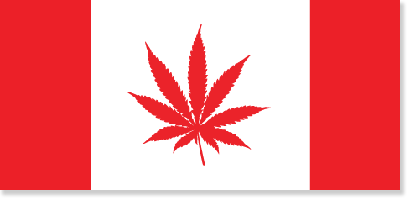Canadian Cannabis Laws
The Cannabis Act implements the legal framework for the nation’s cannabis industry, with strict laws and regulations in place for the production, distribution, sale and possession of cannabis products in Canada.

Age Limit
Barring provincial restrictions, adults that are 18 years of age or older are legally allowed to possess, consume and purchase cannabis.
Possession Limits
Once legalization goes into effect, adults of age will be able to legally possess up to 30 grams of legal cannabis or its equivalent in other cannabis products. Additionally, adults of age will also be allowed to share up to 30 grams of cannabis with other adults who are also of age. Adults of age will also be allowed to possess up to 30 cannabis seeds and cultivate up to 4 cannabis plants per residence.
Product Equivalency
As stated above, adults of age will be able to possess up to 30 grams of legal cannabis, whether it be in dried form or its equivalent in other cannabis product.
Canadian cannabis product equivalencies are defined below:
One gram of dried cannabis equals:
- 5 grams of fresh cannabis
- 0.25 grams of solid or liquid cannabis concentrates
- 15 grams of edibles
- 70 grams of liquid products
- 1 cannabis seed
That means the total possession limits for dried cannabis equivalents (one gram equivalent X 30) are:
- 150 grams of fresh cannabis
- 7.5 grams of solid or liquid cannabis concentrates
- 450 grams of edibles
- 2,100 grams of liquid products
- 30 cannabis seeds
Purchasing
Adults of age are legally able to purchase up to 30 grams of dried cannabis or its equivalent in cannabis oil from provincially-licensed retail dispensaries. In provinces without retail frameworks in place, consumers are able to purchase cannabis legally online from federally-licensed producers.
Product Types
When nationwide legalization went into effect on October 17, 2018, only dried cannabis and cannabis oil was available for consumer purchase. As of December 17, 2019, cannabis edibles, drinks and vapable concentrates are now legal for sale across Canada
Adults of age are also allowed to make their own cannabis edibles (both food and drinks) at home as long as they do not use solvents to create concentrates or other concentrated products.
Consumption
Cannabis consumption is legal in private residences nationwide, but provinces and territories have the right to restrict where cannabis can be consumed (such as public places or in motor vehicles) so be sure to know the laws before you partake in a place other than a private residence.
Cultivation
Under the Cannabis Act, adults 18 years of age or older are allowed to cultivate up to four cannabis plants per residence (not per person). All cannabis must be grown from seeds or seedlings purchased from a licensed supplier as well.
Advertising and Promotion
In an effort to discourage children from partaking in cannabis, Canada has established strict guidelines surrounding advertising and promotion for recreational cannabis. These restrictions are similar to the ones implemented for Canada’s tobacco industry and will be enforced industry-wide.
The following advertising and promotional practices are strictly prohibited:
- Any product that appeals to children or minors
- Packaging cannabis products in a way that appeals to children or minors
- Promoting cannabis in forms/places that could be seen by children or minors
- Dispensing cannabis products through vending machines or self-service mechanisms
Exporting Cannabis
Taking cannabis across Canada’s borders is strictly illegal and violators who are caught will face steep penalties, including a sentence of up to 14 years in jail.
Driving Under the Influence
Canada strictly enforces impaired driving and has specific legislation surrounding drug-impaired driving. Driving under the influence of cannabis is strictly illegal in Canada and violators could face license suspension, vehicle impoundment, fines and/or jail time.
Education
To help discourage children and youth from consuming cannabis, the Government of Canada has allotted nearly $50 million toward public education campaigns for cannabis awareness and health and safety surrounding cannabis consumption.
Medical Cannabis
Medical cannabis will continue to be regulated by the federal government and functions under separate rules and regulations than recreational cannabis. Patients who are seeking more information about signing up for Canada’s medical cannabis program should contact Health Canada.


